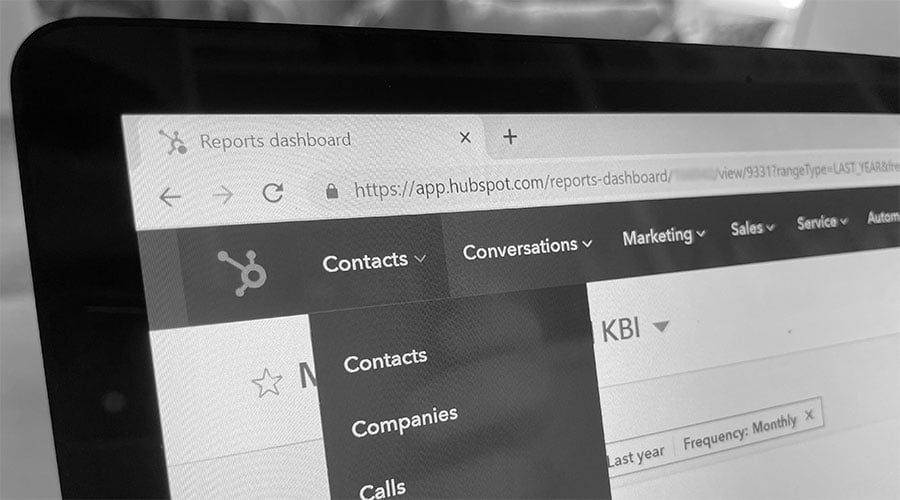To the surprise of some, investing in a CRM system is not always the same as investing in a system capable of doing marketing automation. So what is the difference between the two, and do you need them both? This article will shine a light on that question and explain what I think will happen in the not-so-distant future.
The difference in short
To keep things simple, the core difference between CRM and marketing automation is this:
- A CRM is a place where you store and manage your contact's data (if you want a longer explanation, check out our article, "What is customer relationship management?").
- Marketing automation is a way to automate repetitive marketing actions (e.g., sending an email) toward those contacts. We also have an in-depth piece on this topic - "What is marketing automation?").
Pretty straightforward, right? Even a third and fourth aspect broadens the scope to "automation" but doesn't change the fundamental reasoning. There is sales automation, which is to sales what marketing automation is to marketing, and service automation, that - yeah, you guessed it. The difference with a CRM remains the same.
Do you need them both?
The short and classic answer is that "it depends". A more nuanced answer is that it's tough to do successful marketing automation without an underlying system of record to store interaction data, preferably a CRM. Conversely, it's perfectly possible to have a CRM that doesn't have any marketing automation features.
So, buy a CRM if you find your lead and customer data often gets lost, affecting contacts and your employees' work. If you have too many relations for a spreadsheet (or data isn't stored anywhere centrally), it's time to use a CRM.
The case for marketing automation software is different. Instead, automation should be used when you want to free up time taken up by manual tasks, or pursue opportunities requiring automation because your contacts list is too large to treat manually. Remember: "automation" doesn't mean you can sit back and watch the results produce themselves. Success requires a comprehensive approach, as we explain in our guide to marketing automation.
PS: It will probably soon be simply "CRM automation"
Because "marketing automation" is evolving in every business area, from marketing to service, it will likely soon transform into "CRM automation" to cover all the aspects. That also makes it logically linked as an add-on to your CRM rather than a stand-alone thing.
There is quite a good definition from aviso.com that helps illustrate this: "CRM automation...helps automate tasks such as managing email marketing campaigns, choosing templates, syncing data, scheduling calls, and qualifying leads. It also helps facilitate communication between different marketing and sales teams."
Hopefully, CRM automation as a concept will help more people intuitively understand the difference between CRM on the one hand and automation on the other.
Don't hesitate to book a meeting with me if you want to discuss CRM and automation or need other advice and support in this area! And for more insights into this topic, you can download our guide below. Enjoy!





